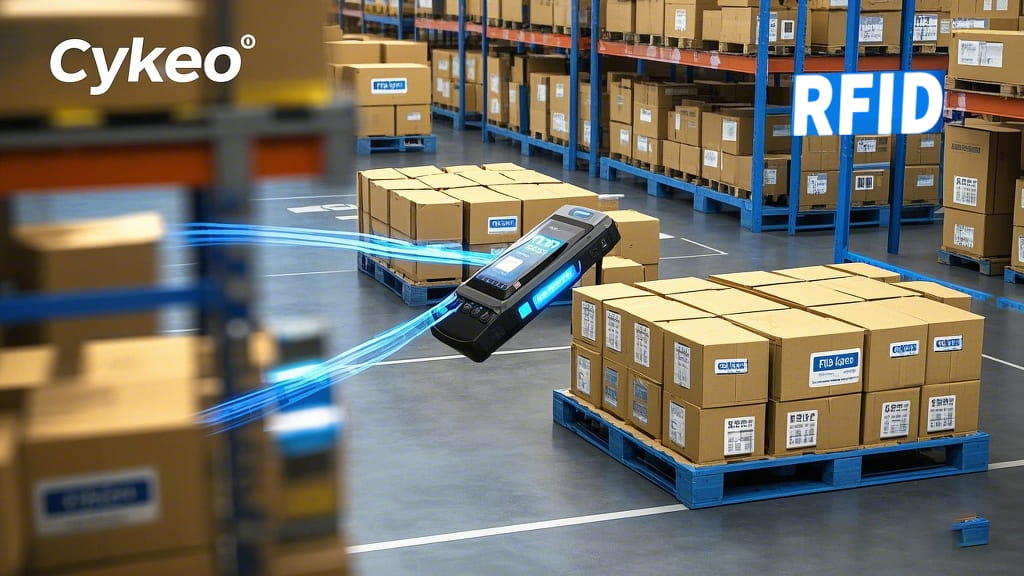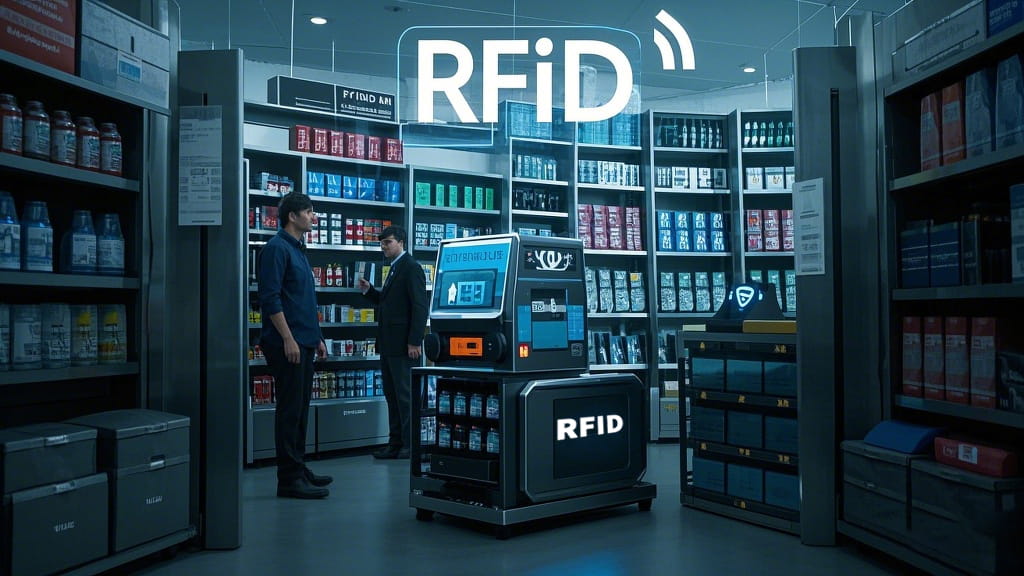Can Any Antenna Be Used for RFID? What Our Lab Tests Show
114Trying to save costs? Discover why asking "can any antenna be used for RFID" is risky and learn the critical factors for RFID antenna compatibility and performance.
MoreAll RFID Product
Imagine unloading a truck with 500 boxes, each containing 20 items. Scanning every barcode would take hours. RFID cuts this to minutes—but what if you could do it in seconds? Enter AI-powered RFID, a breakthrough promising read speeds of 1,000+ tags per second. Sounds like sci-fi, right? Not anymore. Companies like Amazon and Walmart are already testing this tech. But does it work reliably, or is it just hype? Let’s explore how AI is rewriting RFID’s limits and where Cykeo’s solutions are leading the charge.
Traditional RFID systems max out around 200–300 tags/second. For most warehouses, this suffices. But in high-volume scenarios—think Black Friday logistics, pharmaceutical distribution, or airport baggage handling—every second counts.
AI-powered RFID aims to close this gap. But how?

RFID’s speed bottleneck isn’t hardware—it’s signal collision. When multiple tags respond simultaneously, readers get “jammed.” Traditional anti-collision algorithms (like Q Algorithm) prioritize tags one by one, which slows everything down.
AI’s Solution:
Machine learning models predict and decode overlapping signals. Think of it like untangling headphones—AI finds patterns in the chaos.
Cykeo’s AI-powered readers use two key innovations:
In 2023, Cykeo partnered with a European auto parts distributor to test AI RFID in a live warehouse:
The AI system also reduced “missed reads” for metal-cased parts by 40%, thanks to its ability to learn and adapt to interference.
While promising, the tech isn’t flawless. Challenges include:
Cykeo’s Fix:

Speed isn’t AI’s only trick. It also enhances:
A Cykeo client in e-commerce reduced mis-shipped orders by 55% using AI-driven analytics from RFID data.
A high-end AI RFID reader costs 2–3x more than traditional models. But ROI comes fast in high-volume settings:
Cykeo’s Entry Point:
For smaller businesses, Cykeo offers AI-as-a-Service—cloud-based processing that upgrades existing readers via firmware.
Cykeo is already piloting AI-driven drones with retail partners in Asia.
While brands like Impinj and Zebra offer fast RFID, Cykeo’s focus on adaptive AI sets us apart:
Want to Harness AI-Powered RFID for Your Business?
If you’re ready to explore how AI-driven RFID can scan 1,000+ tags per second, reduce errors, and transform your operations, Cykeo’s team is here to help. Email us at contact@cykeo.com for:
Trying to save costs? Discover why asking "can any antenna be used for RFID" is risky and learn the critical factors for RFID antenna compatibility and performance.
MoreWe tried figuring out how to make an RFID antenna in our lab. Here's an honest look at the DIY process, its real-world limits, and why off-the-shelf antennas often win.
MoreDiscover how RFID technology enhances agricultural traceability, reduces waste, and improves compliance. Learn how farms and food brands are leveraging RFID for safer, sustainable food supply chains.
MoreDiscover affordable alternatives to high-end handheld RFID scanners without sacrificing performance. Learn how Cykeo’s budget-friendly options deliver reliability for small businesses and startups.
More